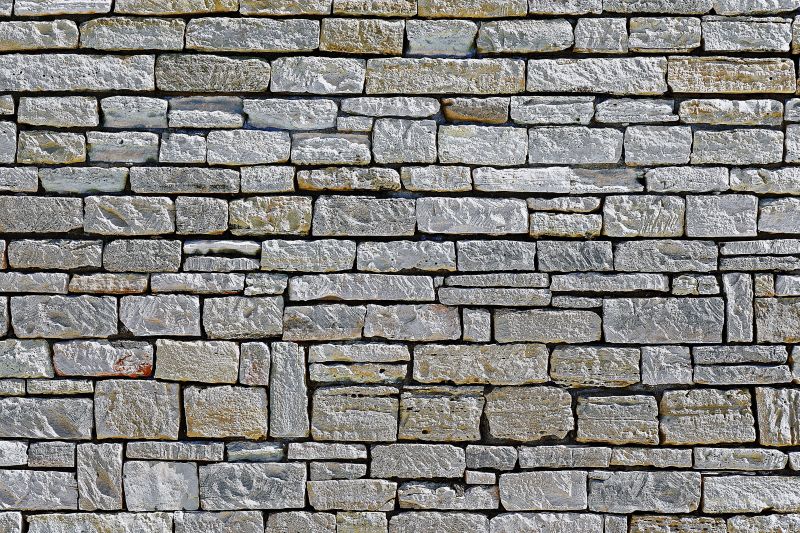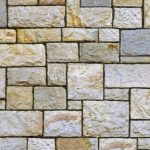Coursed Rubble Masonry is the form of masonry which is commonly adopted in the construction of residential buildings public buildings, piers and abutments for ordinary bridges. Considering the dressing and finishing of the stones, it is further sub-divided into first class, second class and third class masonry. In first class masonry, generally all the courses are of the same height and the minimum height of the course is limited to 15 cm. The face stones are hammer dressed and the projection of the rock-faced surface does not exceed 38 mm. beyond the side or bed joints. The beds of the face stones are hammer or chisel dressed and rendered true and square. In good work, at least one third of the face stones tail back into1bçhearting for a distance equal to two times their height normally, and three times their height for thicker walls. The through stones provided to bind the two faces together are spaced at 18 m. apart and the quoins are of the same height as the height of the course. The length of the quoin is generally kept 45 cm. The thickness of joints in this type should not exceed 10 mm.



